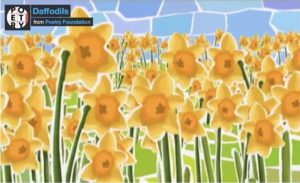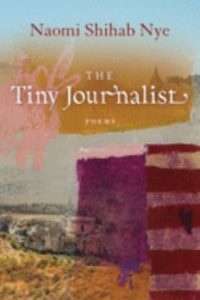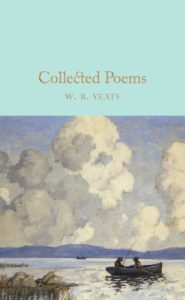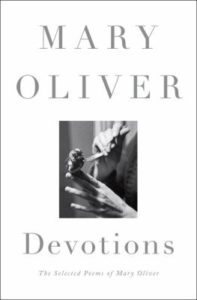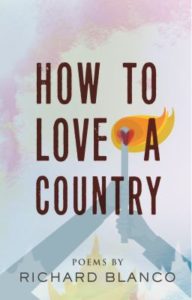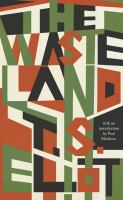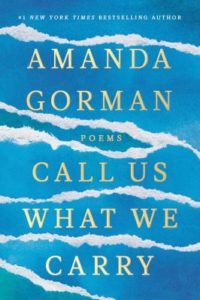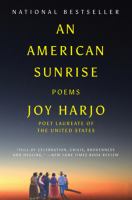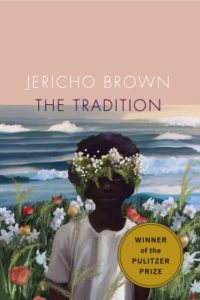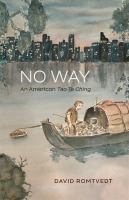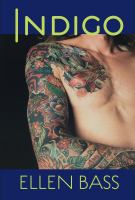In times upheaval and uncertainty, we often turn to poetry. “Poetry tends to the small and necessary elements of experience and observation that might have gone unnoticed,” says award-winning poet Naomi Shihab Nye. Browse our selection of poetry books for National Poetry Month 2022.
Click on a cover image to go directly to Valley of the Tetons Library catalog.
The Tiny Journalist by Naomi Shihab Nye
Long an advocate for peaceful communication across all boundaries, Nye‘s poems in The Tiny Journalist put a human face on war and the violence that divides us from each other. The collection is inspired by the story of Janna Jihad Ayyad, the ‘Youngest Journalist in Palestine,’ who at age 7 began capturing videos of anti-occupation protests using her mother’s smartphone. -from the publisher.
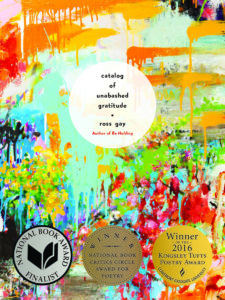
Catalog of Unabashed Gratitude by Ross Gay (on its way)
One big celebration bursting with joy, Gay’s poems burst forth in leggy, unexpected ways. His praise is Whitmanesque, full of manure, mulberry-stained purple bird poop, dirty clothes and hangovers, but also the pleasure of bare feet, of pruning a peach tree, of feeding a neighbor. It is a sustained meditation on that which goes away—loved ones, the seasons, the earth as we know it—that tries to find solace and gratitude in the processes of the garden and the orchard and feet.
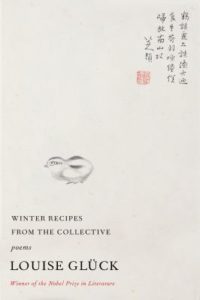
Winter Recipes From the Collective by Louise Glück
A new collection from Louise Glück, winner of the 2020 Nobel Prize in Literature. “Some of you will know what I mean,” the poet says, by which she means, some of you will follow me. Hers is the sustaining presence, the voice containing all our lifetimes, “all the worlds, each more beautiful than the last.” This magnificent book couldn’t have been written by anyone else, nor could it have been written by the poet at any other time in her life. -from the publisher
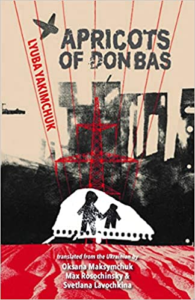
Apricots for Donbas by Lyuba Yakimchuk (on it’s way)
Apricots of Donbas is a bilingual collection by award-winning contemporary Ukrainian poet Lyuba Yakimchuk. Born and raised in a small coal-mining town in Ukraine’s industrial east, Yakimchuk lost her family home in 2014 when the region was occupied by Russian-backed militants and her parents and sister were forced to flee as refugees. Reflecting her complex emotional experiences, Yakimchuk’s poetry is versatile, ranging from sumptuous verses about the urgency of erotic desire in a war-torn city to imitations of childlike babbling about the tools and toys of military combat. The poems’ artfulness go hand in hand with their authenticity, offering intimate glimpses into the story of a woman affected by a life-altering situation beyond her control. –from the publisher
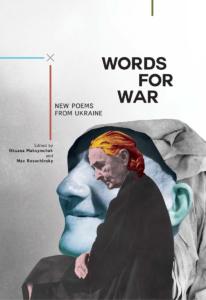
Words for War: New Poem From Ukraine edited by Oksana Maksymchuk & Max Rosochinsky (coming soon)
The armed conflict in the east of Ukraine brought about an emergence of a distinctive trend in contemporary Ukrainian poetry: the poetry of war. Directly and indirectly, the poems collected in this volume engage with the events and experiences of war, reflecting on the themes of alienation, loss, dislocation, and disability; as well as justice, heroism, courage, resilience, generosity, and forgiveness. In addressing these themes, the poems also raise questions about art, politics, citizenship, and moral responsibility. The anthology brings together some of the most compelling poetic voices from different regions of Ukraine. Young and old, female and male, somber and ironic, tragic and playful, filled with extraordinary terror and ordinary human delights, the voices recreate the human sounds of war in its tragic complexity. –from the publisher
Collected Poems by William Butler Yeats
It is possible that no other 20th-century poet has had as much of a singular and lasting impact on his nation and national literature than William Butler Yeats (1865–1939). Yeats’s wide range of styles and subjects reflected the changing world he inhabited and influenced generations of writers who came after him. His best writing was borne of his own personal conflicts and ideological contradictions in order to engage the full complexity of life. –from Poetry Foundation
Devotions by Mary Oliver
Throughout her celebrated career, MaryOliver has touched countless readers with her brilliantly crafted verse, expounding on her love for the physical world and the powerful bonds between all living things. –from the publisher
How to Love a Country by Richard Blanco
The diverse poems in this collection form a mosaic of seemingly varied topics: the Pulse Nightclub massacre; an unexpected encounter on a visit to Cuba; the forced exile of 8,500 Navajos in 1868; the arrival of a young Chinese woman at Angel Island in 1938; the incarceration of a gifted writer; and the poet’s abiding love for his partner, who he is finally allowed to wed. But despite each poem’s unique subject matter or occasion, all are fundamentally asking one overwhelming question: how to love this country? Seeking answers, Blanco digs deep into the very marrow of our nation–our cities and towns–with poems that interrogate our past and present, grieve our injustices and note our flaws, yet remember to celebrate our ideals and cling to our hopes. – from the publisher
The Waste Land by T.S. Eliot
T.S. Eliot, the 1948 winner of the Nobel Prize in Literature, is widely considered one of the giants of modern literature, and The Waste Land one of the most famous and influential poems of the century. While the origins of The Waste Land are in part personal, the voices projected are universal. In The Waste Land T.S. Eliot diagnosed the malaise of his generation and indeed of Western civilization in the 20th century.
Call Us What We Carry by Amanda Gorman
Amanda Gorman, Youth Poet Laureate of the United States, explores history, language, identity, and erasure through an imaginative and intimate collage. Harnessing the collective grief of a global pandemic, her poems shine a light on a moment of reckoning and reveal that Gorman has become a messenger from the past, our voice for the future. The final poem in the book is The Hill We Climb, which was read at President Joseph Biden’s 2021 inauguration. –from the publisher
An American Sunrise by Joy Harjo, Poet Laureate of the United States
The Tradition by Jericho Brown
Jericho Brown’s daring new book TheTradition details the normalization of evil and its history at the intersection of the past and the personal. Brown’s poetic concerns are both broad and intimate, and at their very core a distillation of the incredibly human: What is safety? Who is this nation? Where does freedom truly lie? Brown makes mythical pastorals to question the terrors to which we’ve become accustomed, and to celebrate how we survive. Poems of fatherhood, legacy, blackness, queerness, worship, and trauma are propelled into stunning clarity by Brown’s mastery. –from the publisher
No way : an American “Tao Te Cing“ by David Romtvedt
In “No Way: An American Tao Te Ching,” David Romtvedt explores the art of living in the fast-paced, dangerous, unpredictable contemporary world. Lucid and wise in the spirit of its ancient Chinese predecessor, “No Way” functions as a kind of offbeat-yet-deadly-serious manual on the conduct of life. This slightly tongue-in-cheek take on the Tao‘s advice acknowledges that nobody likes being told how to live, least of all the author himself. –from the publisher
Indigo by Ellen Bass
Indigo, the newest collection by Ellen Bass, merges elegy and praise poem in an exploration of life’s complex grey areas. Whether her subject is oysters, high heels, a pork chop, a beloved dog, or a wife’s return to health, Bass pulls us in with exquisite immediacy. Her lush and precisely observed descriptions allow us to feel the sheer primal pleasure of being alive in our own “succulent skin,” the pleasure of the gifts of hunger, desire, touch. In this book, joy meets regret, devotion meets dependence, and most importantly, the poet so in love with life and living begins to look for the point where the price of aging overwhelms the rewards of staying alive. –from the publisher
